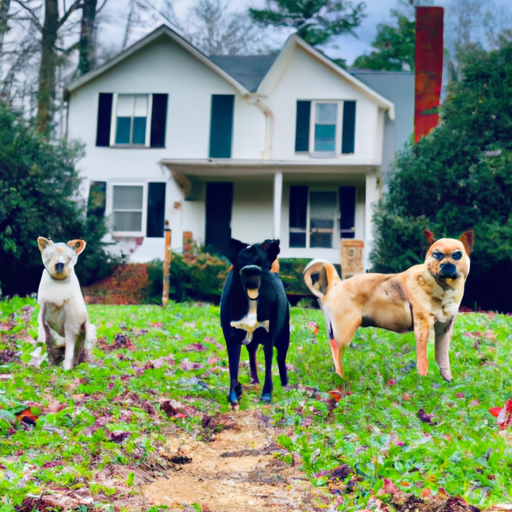In your role as a caregiver, you may find yourself thinking about the security of the ones you love. A good guard dog isn’t just an addition to your security system – it’s a loving member of your household that can provide comfort, companionship, and protection.
1. Understanding Guard Dogs
Guard dogs are a special breed, both literally and figuratively. They are devoted, alert, and protective – qualities that make them excellent security partners. However, not all dogs are cut out for this role.
Guard dogs come from a variety of breeds, each with its own strengths and weaknesses. Hence, it’s crucial to understand the characteristics of each breed before you make your choice.
2. Top 5 Guard Dog Breeds
Here are our top picks for guard dog breeds.
-
German Shepherds – Known for their intelligence and versatility, these dogs are often used in police and military roles.
-
Rottweilers – These dogs have a natural instinct to protect their homes and families. They are fearless and confident.
-
Boxers – They are alert and vigilant, with a strong protective instinct.
-
Doberman Pinschers – Dobies are known for their loyalty and intelligence, and they make excellent guard dogs.
-
Bullmastiffs – These dogs are natural protectors who love being around their family.
| Breed | Characteristic |
|---|---|
| German Shepherds | Intelligence and versatility |
| Rottweilers | Fearless and confident |
| Boxers | Alert and vigilant |
| Doberman Pinschers | Loyalty and intelligence |
| Bullmastiffs | Natural protectors |
3. Training Your Guard Dog
Proper training is crucial to ensure that your guard dog can effectively protect your home. Training should start while they’re still puppies, and it should cover basic obedience, socialization, and specialized guard dog training.
Here are a few tips:
- Be consistent with your commands.
- Reward good behavior.
- Practice socialization skills.
- Hire a professional if needed.
4. Care and Maintenance
Guard dogs, like all dogs, need proper care and maintenance to stay healthy and happy. Here are some essential things to consider:
- Regular vet visits.
- Balanced diet.
- Adequate exercise.
- Mental stimulation.
- Regular grooming.
5. Balancing Protection and Family Life
Remember, your dog is not just a security system; they’re also a part of your family. It’s important to strike a balance between their guard duties and their life as a family pet.
Some tips for achieving this balance include:
- Give them time off duty.
- Include them in family activities.
- Show them love and affection.
- Train them to understand when they’re on guard and when they’re not.
FAQ
Q: Can small breeds be guard dogs?
A: Yes, some small breeds have protective instincts and can be trained as guard dogs.
Q: Is it hard to train a guard dog?
A: It can be challenging, but with consistency, patience, and sometimes professional help, it’s definitely achievable.
Q: Can I adopt a guard dog instead of buying one?
A: Absolutely! Many rescue dogs have the potential to be excellent guard dogs.
Q: What is the best age to train a guard dog?
A: Training should start when they’re still puppies, typically around 8 weeks old.
Q: Can guard dogs be friendly?
A: Yes, well-trained guard dogs know when to be protective and when to be friendly.



